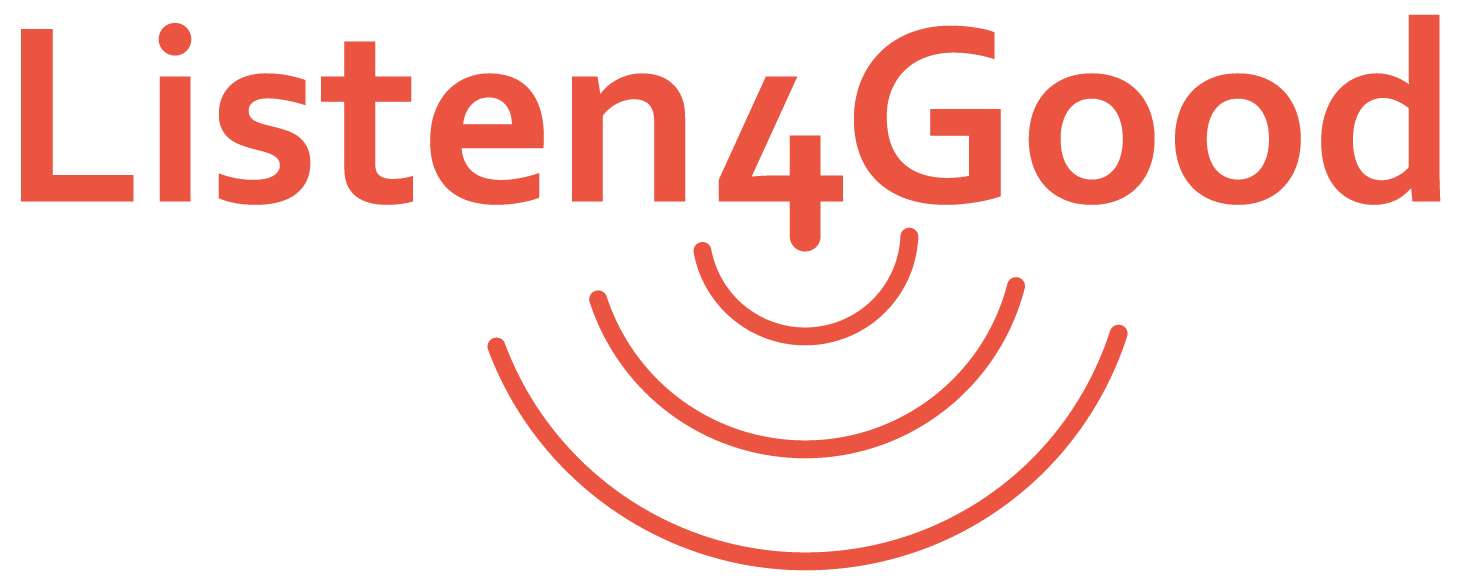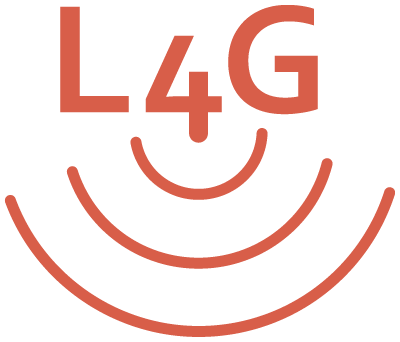- Case Studies
Using NPS to Increase Organizational Impact
October 2, 2024
- Acting on Feedback
- Collecting Feedback
- Data and Impact
- NPS
- Surveying
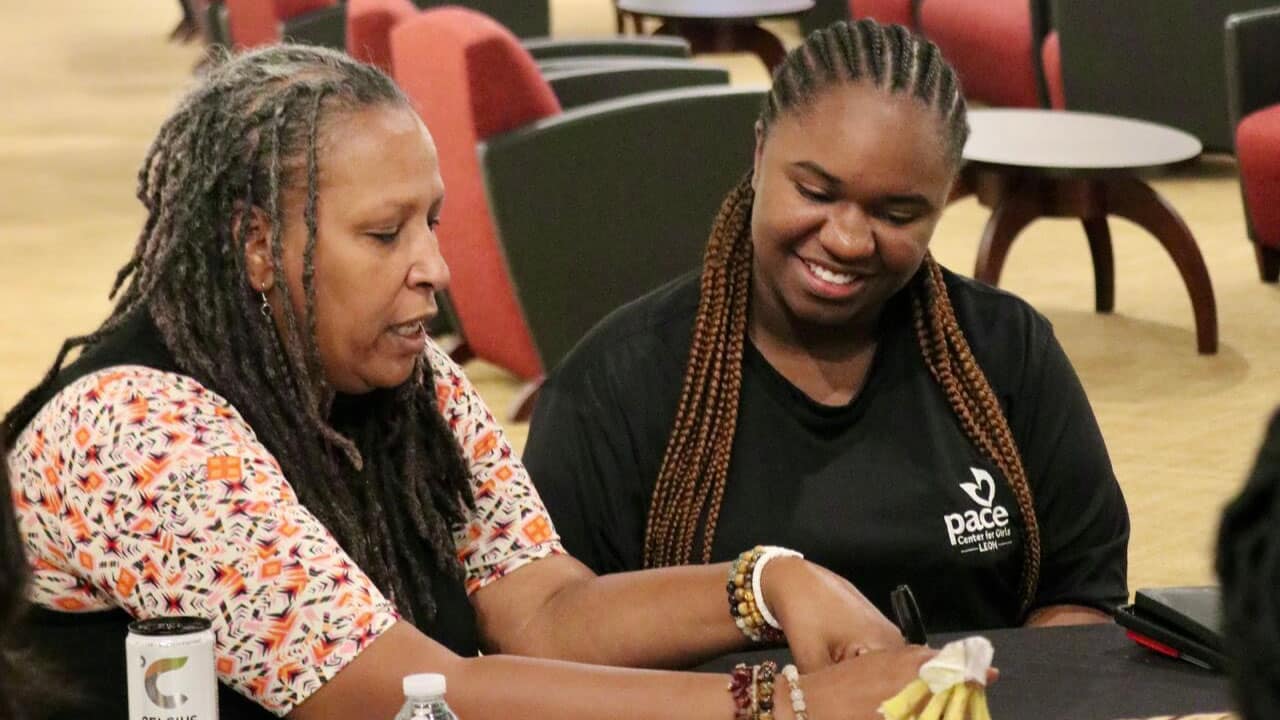
Listen4Good supports organizations to use the The Net Promoter Score℠ (NPS®) framework, along with other experience questions, over time in order to track client sentiments, provide point-in time snapshots of how clients perceive their overall experience with an organization, and illustrate how organizations compare to peers.
This case study details how two L4G participants—Pace Center for Girls and Lone Star Circle of Care—gained insights into clients’ sentiments and perceptions of service delivery through NPS, and then used this data to increase impact.
Understanding THE NPS System
The NPS system was created in customer feedback circles as a more actionable alternative to traditional satisfaction questions. NPS is based on gathering and benchmarking customer feedback to the question: “How likely is it that you would recommend [X company] to a friend or colleague?” on a 0 to 10 point scale. The standard NPS approach also asks an open-ended follow-up question: “What is the reason for your score?”
At L4G, we have tested the applicability of a version of the NPS question to the nonprofit client context, and our analysis suggests that the question is both understandable to clients and capable of discerning differential client experiences. Clients’ responses to NPS are correlated with other questions in the L4G survey looking at the extent to which clients’ needs are met and/or whether they feel treated with respect. Listen4Good is one of the largest projects applying the use of the NPS question in the nonprofit context.
Before working with Listen4Good, Pace lacked critical data to support quality improvement efforts
Pace Center for Girls serves more than 3,000 at-risk girls (ages 11 to 18) annually in 23 communities in Florida and Georgia, providing opportunities for a better future through education, counseling, training, and advocacy. Pace’s program helps girls build relationships, learn communication skills, build positive coping skills, and improve grades in a strength-based trauma-informed environment.
In 2016, Pace joined Listen4Good to strengthen its feedback practices and elicit direct input from the girls and families served by its programs.
Pace integrated the L4G survey into existing processes to gather consistent feedback from 824 girls across more than 17 sites.
Before incorporating feedback into its measurement system, Pace used standard data like grades and school attendance to identify girls’ needs and track their progress. However, this approach didn’t shed insights on how program relationships and experiences could positively influence longer-term outcomes such as girls’ engagement, attendance, and grades. This left Pace with little actionable feedback about how program adjustments could shape long-term outcomes.
Pace uncovered new insights when It started collecting feedback data with Listen4Good
Participating in the Listen4Good program allowed Pace to begin to explore these relationships in detail and build organizational buy-in for feedback as a complementary source of insight. For example, Listen4Good survey data enabled Center management and team members to have in-depth discussions about feedback findings and how the data could be used to improve organizational responsiveness and culture.
Pace used feedback response data to address disparities and improve engagement
Using surveys, focus groups, and participatory action research, Pace explored how different groups of girls, segmented by race, age, or length of time in the program, experienced its programs. Most notably, when Pace broke down the results of the NPS question into more specific subgroups, it revealed that girls of different races had differing levels of satisfaction with services. Girls who identified as African American rated lower than girls who identified as White or Hispanic, and ratings at sites where the student body was majority African American were consistently lower than that of other sites. Pace took pains to investigate the drivers behind these disparities and made targeted changes, shifting its counseling approach to address the gaps. As Pace made programmatic and operational changes, it saw the disparities between ratings diminish and its overall NPS ratings increase over time.
We involve our girls, families, and community partners as consultants and collaborators in data-driven processes to support system of care changes.”
Lymari Benítez, Ph.D. | Pace Sr. Director of Program Information and Impact
Pace also made an explicit organizational commitment to ongoing listening—for example, adding more Town Hall structures and creating representative structures such as Girls Coordinating Councils (GCCs) composed of girls who work with Pace staff, caregivers, educators, and juvenile justice officials to influence conditions in the community favorable to their healthy development.
Partnering with Listen4Good not only led to improved NPS scores, but also increases in retention, academic outcomes, and empowerment
Embedding feedback at Pace helped to increase the organization’s impact in multiple ways. Pace’s NPS showed a significant increase from 5 to 34, meeting the benchmark for the education sector, which typically has lower NPS scores compared to other issue areas.
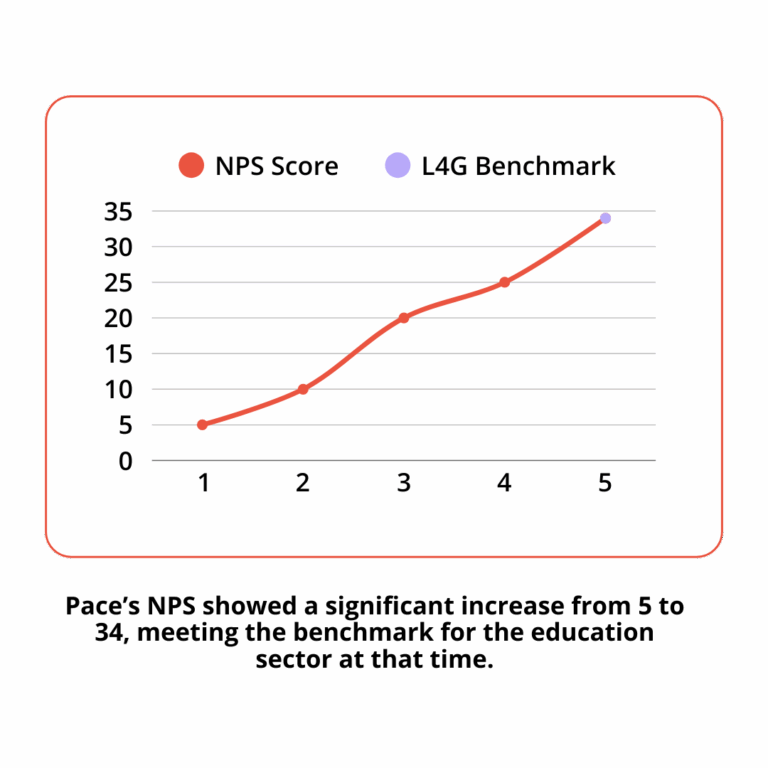
Pace saw that when girls rated higher on feedback surveys, they were more engaged and stayed in the program for longer periods of time. By monitoring NPS changes over time and responding to feedback from girls, Pace was able to increase its retention rates among students from 76% to 91% over five years. These improved retention rates in turn led to better academic performance, increased self-efficacy, and a stronger sense of empowerment among girls.
Through statistical analyses of girls’ perceptual responses in Listen4Good surveys and outcome data, Pace concluded that providing opportunities for girls to share their feedback also contributes to individual girls’ empowerment. Girls who report positive program experiences report stronger self-efficacy in long-term measurements, and the mere act of providing feedback is associated with higher GPA and more school credits, even after controlling for multiple other variables.
LSCC partnered with Listen4Good to proactively address lagging patient satisfaction scores
Lone Star of Circle of Care (LSCC) is a nonprofit, federally qualified community health center with clinics throughout Central Texas providing person-centered and behaviorally enhanced health care and a range of services for the uninsured and medically underserved. Serving over 95,000 patients across 25 sites, LSCC offers adult primary care, pediatric primary care, senior care, comprehensive OB/GYN services, general dentistry, psychiatry and behavioral health, vision services, and pharmacy services.
While LSCC’s clinical outcomes consistently ranked the organization in the top tier of community health centers nationally, patient experience surveys highlighted opportunities to enhance the patient experience. To address these issues, LSCC implemented two evidence-based models shown to improve patient behaviors, including appointment attendance and compliance with physician instructions. The evidence-based models focused on the patient experience: AIDET (Acknowledge, Introduce, Duration, Explanation, and Thank You) and Language of Caring (LOC). Both frameworks aim to reduce patient anxiety, improve clinical outcomes, boost patient compliance, and increase patient satisfaction.
As LSCC embarked on its two-year journey to enhance the patient experience across its 25 clinics, leadership realized they needed a robust monitoring system to track the extent to which these newly enacted customer service commitments were being carried out and the impact. By participating in Listen4Good, LSCC was able to gather real-time data on the extent to which staff were embodying and implementing LSCC’s newly enacted customer service commitments.
After implementing organization-wide staff training, LSCC distributed L4G patient surveys via tablets on site, asking clients the NPS question as well as specific questions about whether staff carried out their responsibility related to AIDET and Language of Caring. LSCC received over 26,000 survey responses across 25 clinics. Survey responses were anonymous but were tagged to specific providers and locations.
Partnering with Listen4Good not only resulted in increased NPS scores but also created leading indicators of broader patient experience results for individual clinics
As a result of its active management and responses to address weaker feedback results, LSCC saw a significant improvement in its average NPS score across all participating clinics, as its NPS score increased from 65 to 75, which is comparable to L4G’s health issue area benchmark. Consistent use of the new communication models correlated with improved patient experience, as measured by increased NPS over time.
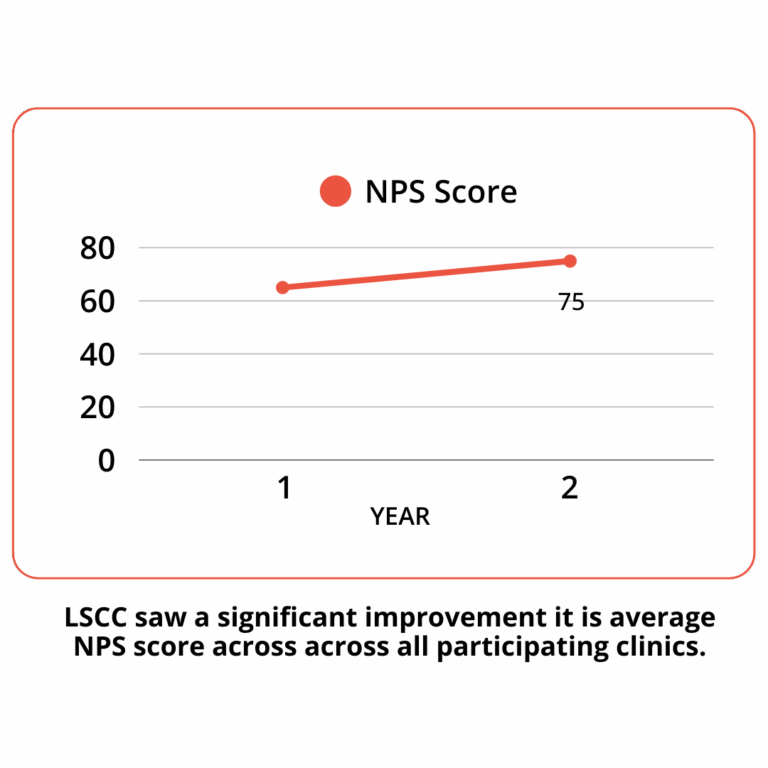
Building on this success, LSCC further started to look at the relationship between its L4G patient surveys and mandated patient experience surveys administered by a third-party industry provider. The team at LSCC saw positive correlations and was able to use its L4G patient experience data as a leading indicator to anticipate broader patient experience results for individual clinics.
“The patient feedback provided on these questions revealed areas where staff needed additional training or reminders to use their new communication skills. Clinic managers are now spending more time with staff observing use of AIDET and LOC and coaching as appropriate.”
Lone Star of Circle of Care
Conclusion
Both Pace Center for Girls and Lone Star of Circle of Care demonstrate the powerful impact of consistent and structured feedback mechanisms on improving organizational outcomes and client satisfaction. By leveraging Listen4Good surveys, these organizations were able to make data-driven decisions that enhanced services and positively influenced constituents’ experiences.
